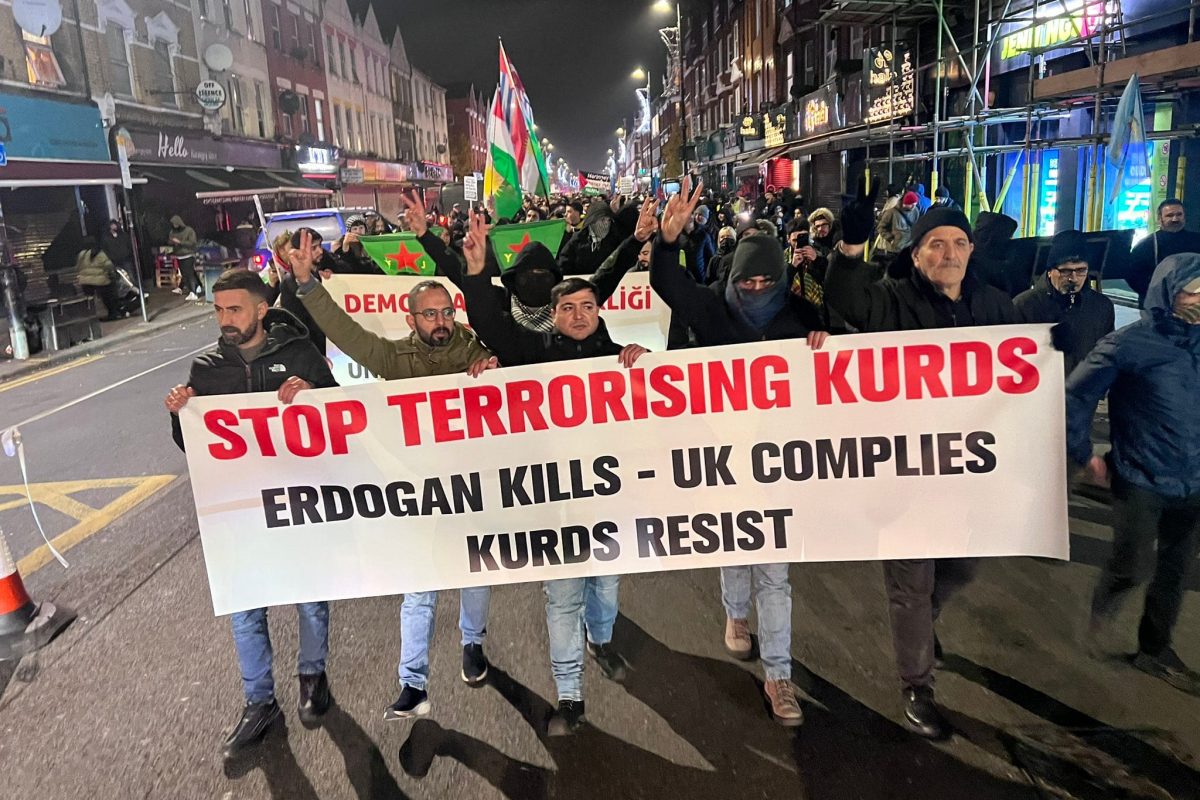The entertainment industry is amongst those that has been hit hard by the pandemic-induced paralysis of the economy. Uncertainty prevails for film and television workers, as the future of the sector hangs in the balance.
Coronovirus has crippled the film and television industry. Workers across the sector are losing jobs and contracts. The overwhelming majority of television and film workers are on precarious contracts – the majority either freelancers or ‘self-employed’. Tens of thousands of these workers have been thrown under a bus, as corporations and production companies move to protect their profits in light of the filming hiatus.
According to the American Union IATSE, 120,000 people have lost their jobs in Hollywood. BECTU (the Broadcasting, Entertainment, Communications and Theatre Union in the UK) has estimated that 50,000 freelancers in Britain will lose their jobs. A survey conducted by BECTU estimates that 71% will struggle to survive financially.
Shutdown
Netflix has paused all its TV shows and movies, and closed all production offices. Viacom has shut down offices worldwide. Bollywood in India has suspended all filming. Paramount has paused filming on the latest Mission Impossible film. Warner Brothers has closed multiple offices and stopped filming for Riverdale. Disney has shut down filming of The Falcon and the Winter Soldier. Amazon has put its star show Carnival Row on pause, with star Orlando Bloom in quarantine.
The productions either cancelling or pausing are endless: Batman, Little Mermaid, Cinderella, Fantastic Beasts 3, Tailspin & Nevers, Peaky Blinders Season 6, America’s Got Talent, The Morning Show, The Bachelorette, Chicago P.D., Agatha Raisin, Silent Witness, Emmerdale, Coronation Street, Project Ice Cream, Goldies Oldies, 999: On The Front Line, Pennyworth 2, Cage Au Folles, Women on The Force, Atlanta, Fargo. These titles are but a few of the big films and shows affected.
ITV – who usually set a benchmark for the health of independent television productions in the UK – has seen its share price collapse by more than half between December and now. This shows a colossal loss of confidence in the company, painting a bleak picture for the future of independent production companies. Many smaller companies will likely not survive this crisis.
Future productions that were to be commissioned are being cancelled, as insurance companies will no longer insure them. Some development teams have been quoted as saying that only archive-based productions should be commissioned for the time being. But even here, there are long delays for archive requests, as archive houses across the world are also either shut down or moved to home working. The BBC Archive (Perivale) has just announced that they are shutting down for the foreseeable future.
Workers left stranded
Governments across the world knew that this chaos was coming. Yet they failed to plan in advance or forewarn about the necessary restrictions. This has led to confusion and disarray in the industry. Coordinators and production managers have frantically spent the last week trying to get their film crews back to their respective countries, as borders across the world shut.
Many workers have been quoted saying that they are not expecting any work until at least August. A group of workers at Pinewood Studios were previously told over the weekend that filming would be put on a two-week hiatus. Pinewood, however, then backdated their notices by a week so that employees would be paid a week less! These workers are now likely looking at months of unemployment. ITV are offering to pay freelancers more quickly if they ‘discount’ their invoices – a practice they have also used in ‘normal’ times.
Individuals have been contacting their banks to get deferments on their mortgages. Others have been negotiating with their landlords. Workers in support groups shown how exasperated they are at the situation.
“Like a lot of people here, I’m a sole director of my Ltd. company. Jobs are being cancelled left, right, and centre. (It wasn’t a busy Jan/Feb to begin with.) I’ve got a mortgage and kids to feed. And I have no idea what to do next!”
“I just lost my job in the US, and flew back last Friday. Not entitled to any benefits until June. Thankfully I have family here. However, I have since become infected with the virus and now crashing at a friends as my mother is a triple heart attack victim and in her 60s. I have enough to get through the next couple weeks, but if anyone knows of any jobs going please reach out.”
Another dramatically said: “Last bit of work been cancelled for me too now…Sending hugs to everyone going through anxiety and panic and depression and despair.”
Future of film and television
 The enormity of this crisis is beginning to dawn on workers. Many are only just processing what it will mean for our industry. This is not like the 9/11 crisis or the Iceland volcano, which both also disrupted the industry. The current crisis will be on a higher level even than that of 2008.
The enormity of this crisis is beginning to dawn on workers. Many are only just processing what it will mean for our industry. This is not like the 9/11 crisis or the Iceland volcano, which both also disrupted the industry. The current crisis will be on a higher level even than that of 2008.
Capital Economics has predicted that UK GDP could fall by 15% in the next quarter. In 2008, the equivalent figure was a shrinkage of 6%. Similar collapses are predicted for the US economy, which has the largest film and television industry in the world.
The ground is being prepared for an unprecedented wave of attacks on workers’ pay and conditions. Everything from our working hours, holiday pay, maternity leave, to camera operators overtime pay will be under attack.
This will be a severe, deep, and global crisis. The capitalist system was already teetering on the edge before the emergence of covid-19. Advertising money is being pulled across the board. Many ordinary households across the world will be unable to hold onto all their subscriptions – to Netflix, Amazon Prime, Google Premium, Disney+, Hulu, Now TV, Sky, etc. Insurance companies will only be willing to insure the safest and most secure productions. Many smaller independent companies will likely go bankrupt and not make it through the other side.
Freelancers were already in a precarious position. Most workers did not know how much they would make at the end of the year; when they would get paid. Many in the sector have struggled to make ends meet even before the pandemic paralysis.
The majority of media jobs in the UK are located in cities with high rents and living costs. Runners and many other freelancers already have to do part-time work in other jobs to pay the bills. Industry work has been highly precarious for some time. But the coronavirus is set to heighten all of these tensions to extreme levels.
Work or full pay!
Last Friday, Chancellor Rishi Sunak pledged that the government would subsidise businesses by paying 80% of workers’ wages, up to £2,500 a month, including for those who have been laid off in recent weeks because of the coronavirus crisis.
This will come as a welcome announcement to many. But it has rightly infuriated freelancers and the self-employed, who are not included in the Chancellor’s package. In reality, these workers (including the current author) are no different from any others in the industry. But it is unclear if any of these measures will help us. Instead, the Tories’ proposals leave all the power in the hands of the bosses, who simply won’t keep people on unless it is profitable.
Workers must unite together against these injustices, and launch a wave of struggles through the labour movement under the slogan of ‘work or full pay’. BECTU must demand of both the Tory government and the production company bosses:
- Companies must abide by existing short-term contracts and pay workers the full amount they are signed up to.
- ALL freelancers and self-employed workers must be included in the government scheme to cover workers wages.
- Increase statutory sick pay, and provide this for all workers, including the self-employed.
- FIght to defend existing pay rates and terms and conditions – no undercutting of workers’ rights and wages!
- Nationalise the big production companies under workers’ control and management!
- Provide immediate access to Universal Credit, and end all benefit sanctions.
- Immediately suspend rents, mortgage payments, and utility bills.
- Nationalise the banks, water companies, energy suppliers, and internet providers!






